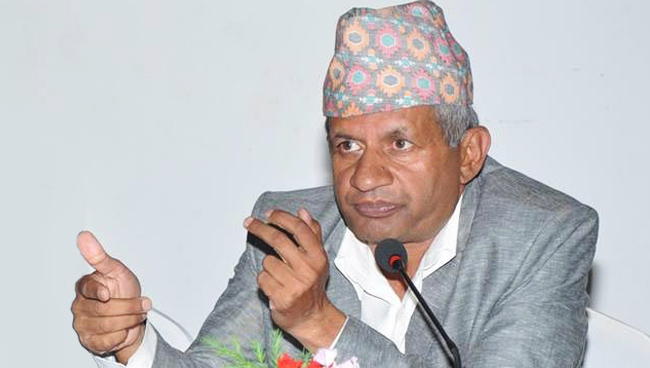
Kathmandu, January 17
A two-day China Nepal Think Tank Conference 2017 began in Kathmandu on Tuesday.
There was remarkable participation of prominent figures from the media, diplomacy, politics, trade and commerce and academia.
Speakers, including former prime minister and CPN-UML Chair KP Sharma Oli, Rastriya Prajatantra Party Chair and former deputy prime minister Kamal Thapa, former minister and Naya Shakti Nepal leader Hisila Yami, Federal Socialist Forum leader Shivaji Yadav, Nepali Congress youth lead er Guru Raj Ghimire, dwelt on various aspects of Nepal-China relations.
er Guru Raj Ghimire, dwelt on various aspects of Nepal-China relations.
Most of the speakers noted that relations between Nepal and her northern neighbour have remained stable despite epoch-making political changes in Nepal. They expressed commitment to one-China policy. Like on many other occasions, they stressed the need to transform Nepal into a bridge between India and China and draw benefits by facilitating trade between the emerging superpower and hyperpower.
At the programme, former DPM Kamal Thapa said Nepal-China relations were as old as history. He accused the present government of not showing seriousness towards implementation of agreements that Nepal and China had reached when KP Sharma Oli was prime minister. He stressed the need to develop trade and transit links between the two countries. Thapa pointed that Nepal can be a point through which China can connect with South Asia and beyond.
Yami pointed that former Prime Minister and Naya Shakti coordinator Baburam Bhattarai had first floated the concept of developing Nepal as a dynamic bridge between India and China.
Yadav also noted that relations between Nepal and China have remained stable throughout the ages. He expressed hope that the conference will be able to find out ways to resolve the political crises plaguing Nepal.
On his part, Ghimire described the 10-point Nepal-China agreement signed during KP Oli’s premiership as historic. He, though, pointed that the deal will not mean much unless and until political parties of Nepal come together for its implementation. Ghimire called political parties to translate their pledges into action instead of spending their time talking.
Professor Wang Donghong, a member of the Chinese team attending the conference, pointed that Nepal and China had entered into agreements of long-term strategic importance when KP Oli was Prime Minister. He told Onlinekhabar: Both the countries should do homework regarding the status of the implementation of those accords.
Unlike on many other occasions, Oli did not wax eloquent at the programme, pointing that those, who spoke before him, had already covered almost all topics. He, though, expressed confidence that Nepal will be able to hold elections to the House of Representatives by January 2018 and end the political crisis.
Nepali political leaders participating in the conference lauded the One Belt One Road initiative and pointed that it can transform the world. Like on may other fora, they pointed the need to reap benefits from thriving Chinese and Indian economies despite the fact that Nepal does not have institutional capacity to benefit from the prosperity in the neighbourhood.






















